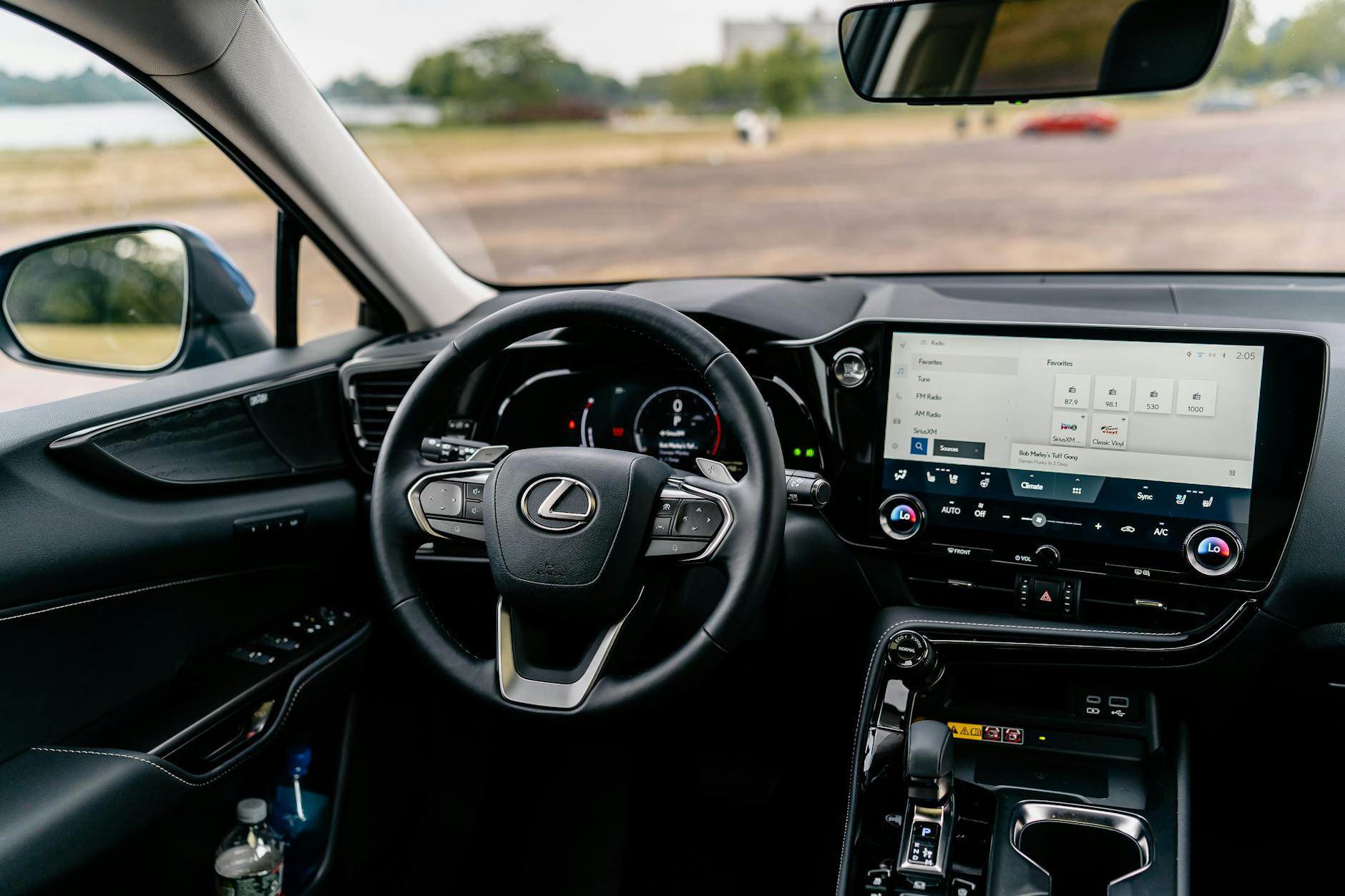How to Choose the Perfect Family SUV in Australia

Assessing Your Family Needs
Choosing the right family SUV is a significant decision that requires a clear understanding of your family's unique needs. With Sydney Road's bustling car dealerships offering a variety of models, it's vital to consider several factors before deciding.
Evaluating Passenger and Cargo Space
A family-friendly SUV should comfortably accommodate everyone, from toddlers in car seats to teenagers who need extra legroom. Look for SUVs with adjustable seating configurations and ample cargo space, particularly if you often find yourself carting around sporting equipment or groceries. Used Ford models, for example, often provide excellent space configurations suited for families without straining the budget.
Prioritizing Safety Features
Safety should never be compromised, especially for families on the go. Always check for essential safety features, including advanced braking systems, airbags, and anti-lock brakes. Many newer models, even those you find used through St. Kilda's community car fairs, are equipped with lane-keeping assist and adaptive cruise control to ease the anxiety on long drives.
Considering Technological Amenities
Today's families often rely on technology for entertainment and convenience, especially during longer travels. Features like Bluetooth connectivity, rear-seat USB ports, and integrated navigation systems can add significant value. When considering a used Kia, for instance, assess its tech offerings, ensuring they meet your family's multimedia needs.
By keeping these factors in mind, you can confidently navigate the complex SUV market, knowing what best supports your family's lifestyle while ensuring long-term satisfaction.
Understanding Fuel Efficiency
Grasping fuel efficiency is key when selecting an SUV, especially in Australia, where long drives are part of the lifestyle. Many buyers in Melbourne, for instance, evaluate vehicle options during events like the test drive sessions at the Melbourne Showgrounds. This allows potential buyers to experience various models and understand their real-world fuel consumption.
Comparing Fuel Types and Mileage
Understanding the differences between fuel types is crucial. Petrol, diesel, and hybrid powertrains each offer unique mileage and cost benefits. For instance, a 2nd hand Hyundai i30 SUV may provide reliable gas mileage, making it appealing for families concerned about recurrent fuel costs.
Hybrid vs. Traditional SUVs
Hybrid vehicles offer a blend of electric and petrol power. This dual-engine setup can enhance fuel efficiency significantly. Yet, traditional petrol or diesel SUVs remain popular for their straightforward maintenance and lower upfront costs. Models like the 2nd hand Ford Ranger are known for their performance and luxurious feel but may not offer the same fuel savings as hybrids do.
Analyzing Real-World Fuel Consumption
When considering fuel consumption, it's essential to look beyond the manufacturer's specifications. Real-world tests and reviews are invaluable, providing insights into how vehicles perform in everyday conditions. Potential savings can be calculated by comparing running costs, a point often discussed in community car fairs around St. Kilda.
Arming yourself with this knowledge ensures you make an informed decision that aligns with your family’s lifestyle and budget constraints.
Evaluating Durability and Maintenance
Reliability Ratings of Popular Models
When navigating Melbourne's bustling car dealerships on Sydney Road, you’ll likely encounter a variety of used vehicles, each claiming to be the paragon of reliability. Investing in a dependable SUV starts with checking the reliability ratings of popular models. Resources like automotive review sites and word-of-mouth experiences can provide valuable insights into how well a vehicle might perform in everyday life. For example, Mercedes, Honda, or a used Mazda often go through rigorous testing to ensure they stand the test of time. Stress less about surprise breakdowns by opting for cars consistently rated high in reliability.
Understanding Warranty and Service Plans
With the increasing array of warranty and service plans available, it's crucial to understand what’s covered before sealing the deal. Some dealerships offer extended warranties, alleviating fears of unexpectedly high repair costs. Whether it includes free service flights can be decisive for those mindful of long-term maintenance expenses. Assess carefully which plan genuinely provides valuable coverage versus those that merely add to the upfront cost without substantial benefits.
Tips for Maintaining Used SUVs
Once you drive off from a test drive event at the Melbourne Showgrounds, the real game begins: maintaining your used vehicle effectively. Regular check-ups play a pivotal role in prolonging the life of your SUV. Start with routine oil changes and tire rotations. Moreover, having a dedicated maintenance schedule—from brake inspections to fluid top-ups—can help preempt costly repairs down the road. Stay informed with the help of your mechanic's advice and keep your family on the go, safely and efficiently.
Budget-Friendly Used Vehicle Options
Navigating the used car market can be daunting, especially when seeking a family-friendly SUV that won't break the bank. With Melbourne's vibrant car fairs and bustling dealerships along Sydney Road, you're sure to find enticing, budget-friendly options. Focusing on established models like the used Hyundai Tucson can be beneficial, as these vehicles are known for balancing affordability with reliability.
Comparing Top Models Within Budget
When comparing models within your price range, look for SUVs offering generous space and essential safety features. Vehicles like the Hyundai Tucson or Kia Sorento generally provide the interior flexibility a family like yours needs. Checking online resources for comparison tools can help make this task less overwhelming.
Finding Deals and Negotiation Tips
Once you zero in on potential models, the next step involves finding the right deals. Keep an eye on test drive events at the Melbourne Showgrounds and community car fairs in St. Kilda, where you can interact with knowledgeable sales representatives. Don't shy away from negotiating the price. Highlight any minor issues found during inspection as leverage for getting a better deal.
Inspecting Pre-Owned Vehicles
Finally, thoroughly inspecting any pre-owned vehicle is crucial. Check the service history for consistent maintenance records and be attentive to signs of wear and tear that might lead to future costs. Consider bringing along a trusted mechanic or utilising a professional inspection service to ensure you're making the right choice. Remember, attention to detail now can save future headaches as you seek a reliable, cost-effective family SUV.
Best Practices for Decision Making
Thorough Test Drives
Test driving is a pivotal step when determining the ideal family SUV. It allows you to truly gauge how the vehicle handles, its comfort level, and the functionality of its features. I recommend taking the car for a spin during a test drive event at the Melbourne Showgrounds. This controlled environment often provides sector-specific insights and helps you compare different makes and models on your terms. While on the test drive, pay close attention to the SUV's response to abrupt stops, its acceleration, and how easy it is to park. This firsthand experience can inform whether you've found the right balance of durability and safety.
Consult Reliable Resources
Gathering opinions from reliable sources is crucial for making informed decisions. Reviews from automotive researchers, trusted online car forums, and knowledgeable friends can be invaluable. In bustling areas like Sydney Road, reputable dealerships can provide insights into the longevity and performance of various SUVs. Plus, don't overlook the feedback from other parents at community car fairs in St. Kilda who have already navigated the used car market.
Balancing Needs with Resale Prospects
Finally, it’s essential to evaluate how your family's needs align with the vehicle's future resale value. An SUV may tick all the boxes now, but consider how it might fit your family in a few years' time. Look for models that have historically maintained good resale values, as this could be advantageous when it’s time for an upgrade. Balancing immediate practicality with long-term financial sensibility ensures you're making a wise investment for your family's future.


